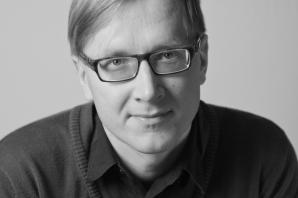Capital, compensation and the role of the family
The link between capital inputs and success in life are broadly accepted, but very rarely discussed. Professor Jani Erola is using his ERC funding to explore the sociological implications of this relationship. His research concentrates on the complex interaction between a family’s resources and children’s success over the course of their lives: examining how families act collectively to determine the next generation’s achievements. Prof. Erola is a speaker at the 18th World Congress of the International Sociological Association (ISA) which opens on 13th of July in Yokohama, Japan.

Prof. Erola and his team will be focusing on parental socio-economic status as a predictor of their children’s socio-economic outcomes. It is often assumed that parents with higher levels of capital are able to draw on a wider range of resources to steer their children successfully through life. Their occupational standing, and associated income, enables them to secure a good education for their children and to positively influence their later careers: either through direct financial investment or through the social networks they can call on. Such influence is often a direct result of their own educational background. There is also some evidence that couples are delaying having children because they do not feel they have sufficient resources to pass on.
A recipe for success?
Ostensibly, there is a direct relationship between cause and effect at work here. Prof. Erola will be questioning the extent to which there is a linear relationship between capital input and socio-economic output. Whilst such relationships may seem obvious, we have very little evidence for these assumptions: Prof. Erola comments: “The concept of compensation is key to any understanding of the role of intergenerational transfers, and social mobility more widely.” He will be analysing how capital and compensation play a part in responses to events throughout the life course: particularly following the death of a parent, the break-up of the family, or the ramifications of unemployment for the family as a whole.
In the first case, it is obvious that the human capital of the deceased parent has gone for ever, but any children can retain the economic and social capital associated with their lost parent. Such resources can even be enhanced. The support of the wider family can also act as compensation: there is little evidence of any long-term detrimental impact on a child’s life chances.
Examining the Finnish data, Prof. Erola felt that the impact of life course events on the family has been overlooked. “In the case of divorced couples the presence of a step-parent compensates the children for the absence of their father or mother in terms of the capital invested in them. It is important to remember that institutional contexts are significant here: it is not self-evident that these findings will be applicable elsewhere without some adjustments,” he says. In order to test their observations, the team will draw on panel data from Finland, Germany and the US: hoping to trace the evolving patterns of family formation, and the intergenerational dynamics which determine the distribution of resources.
The social impact of compensation
These questions are central to any understanding of the workings of social mobility. Lying just beyond the core research are questions of chance, and luck. The data can reveal much about the relationship between our intergenerational inheritance of resources and the observable outcomes. It cannot altogether eradicate the element of the unknown, or explain the child who succeeds when everything seems stacked against them.
In their upcoming ISA World Congress of Sociology paper, Prof. Erola’s team are looking at the intergenerational effects of unemployment, drawing on data on the long-term impact of the severe recession in Finland in the early 1990s. They are examining the role of social institutions: “It is always assumed that social institutions have a universally positive effect on addressing inequality, but this is not necessarily the case. Targeted strategies may have the desired impact, but they are not a remedy for all ills. They can act as a compensating mechanism, in cases of unemployment for example, but their ability to do so is not universal.”
The ERC Consolidator grant is only in its initial stages, but the team are already looking at the impact of the extended family (grandparents, aunts and uncles) as sources of intergenerational compensation. They are also starting to assess the impact of neighbourhoods over the life course because neighbourhood environments act as the cradle of social networks.
Prof. Erola reflected that he started looking at the intergenerational aspects of social mobility as a side project within his PhD, but “questions of inheritance and compensation took over and became what really motivated me as a researcher. The ERC funding has given me the freedom to pursue research questions with no external pressure as to the direction. The grant is also a sign of merit, which means that my research is taken more seriously.”


